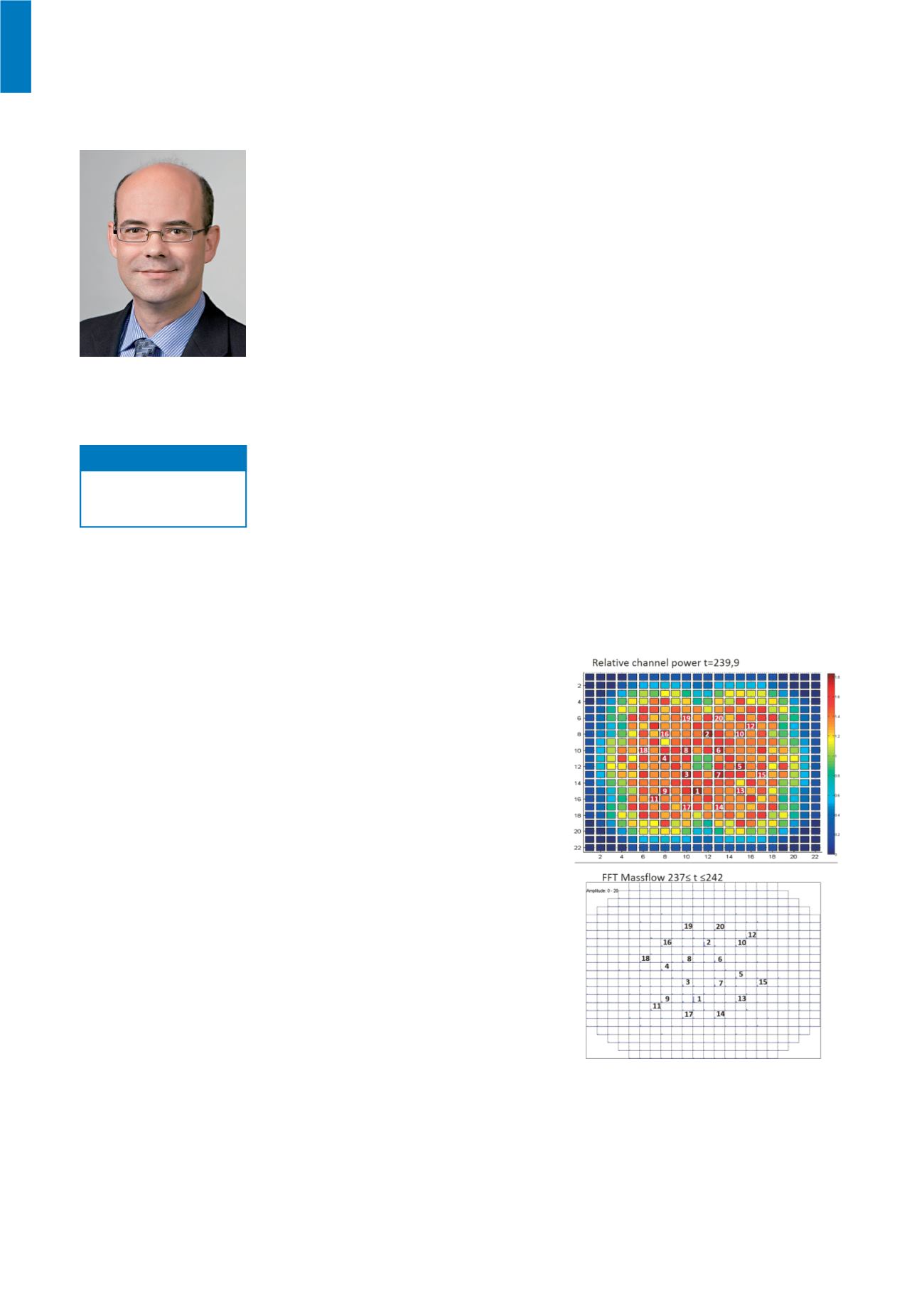

200
Nuclear Engineering
Nuclear Engineering
Nuclear engineering and nuclear safety
Prof. Dr.
Rafael Macián-Juan,
Ph.D.
Nuclear Reactor Safety Analysis of
Current and Future Reactor Designs
One of the lines of research at the institute
involves the development and application
of methodologies for safety analysis of
nuclear reactors. They follow multi-phys-
ics approaches by coupling computer
codes able to simulate important physical
processes driving the behavior of nuclear
systems. For the flow description, the
computational fluid dynamics (CFD)
ANSYS-CFX and OpenFOAM are coupled
in real time with state-of-the-art multi-
dimensional time-dependent neutronic
codes (PARCS) which provide a detailed
description of the core neutronic behavior.
The most important reactor feed-backs
are then calculated and the detailed local
description obtained of the thermal-hy-
draulics and neutron flux distribution can
be used for full system simulation analysis
with codes such as TRACE and ATHLET.
In 2016, this research line has been
continued through projects which focus
on the development of uncertainty and
sensitivity methodologies for multi-physics
applications for liquid metal fast reactors;
the development of an advanced model
for turbine modeling based on parameter
estimation techniques and online sensitiv-
ities; the development of a novel spectral
methodology for local analysis of insta-
bilities in BWRs; and the development
of detailed modeling tools for the local
n
The focus of the Institute of Nuclear Engineering in 2016 followed the
research lines started and developed in 2015. The main topics of our
activities are devoted to the development of multi-physics nuclear safety
methodologies with coupled code systems; the simulation of the behavior
of plant components under off-operation conditions; experimental two-
phase flow thermal-hydraulics; the development of uncertainty meth
odologies for multi-physics applications; the simulation of nuclear fuel
behavior; the development of advanced molten salt reactor concepts; and
the development of a methodology for the characterization of local insta-
bility in nuclear reactors. Part of this work was conducted in collaboration
with international research institutes (CERN, KIT, ITU, GRS) and university
departments.
www.ntech.mw.tum.de sekretariat@ntech.mw.tum.dePhone +49.89.289.15621
Contact
Highlights for 2016 were the initiation of
work on chemical separation of fission
products for the dual fluid reactor (DFR),
in collaboration with the IFK Institute
in Berlin, and the prize for best thesis
awarded by the European Nuclear Educa-
tion Network to our Ph.D. student Fabiola
Cappia (working at ITU) for her work on
high burn-up structure in nuclear fuel.
Boiling water reactor local stability analysis with a FFT-
based spectral methodology (S. Walser Ph.D. work)


















